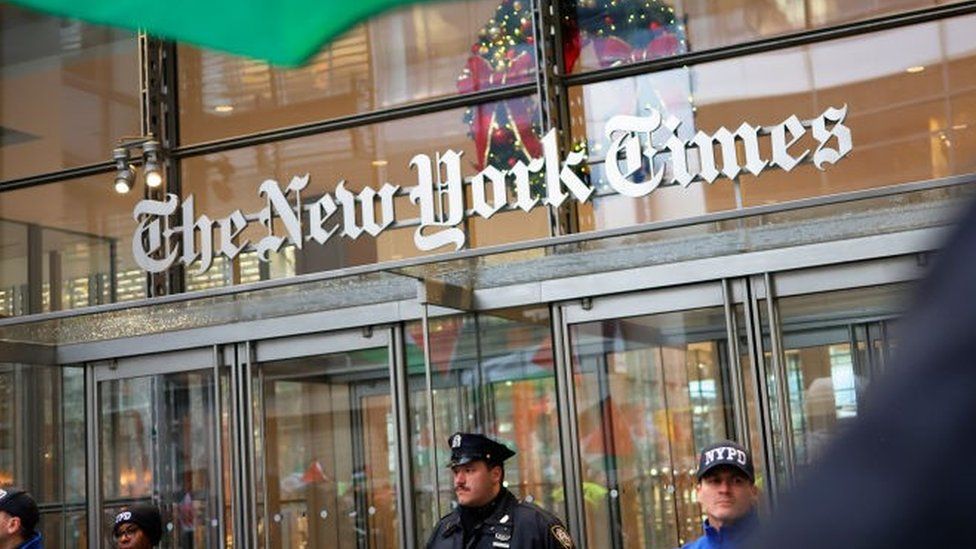
New York Times Sues Microsoft and OpenAI: Copyright Battle Unveiled
In a legal showdown that has sent shockwaves through the tech industry, the New York Times has taken legal action by suing Microsoft and OpenAI. This bold move asserts copyright infringement in the training of ChatGPT, a language model owned by OpenAI.
Unveiling Allegations of Copyright Infringement
The lawsuit, officially filed in a Manhattan federal court, claims that the intelligence of ChatGPT was enhanced by utilizing millions of New York Times articles without proper authorization. This has positioned ChatGPT as a direct competitor to the esteemed news organization. Notably, when ChatGPT responds to current events, it allegedly generates verbatim excerpts from New York Times articles, providing access without the need for a subscription.
Financial Ramifications on the New York Times
The legal filing highlights a significant financial impact on the New York Times. Readers can freely access the newspaper’s content without subscribing, resulting in substantial revenue loss from both subscription fees and advertising clicks. The lawsuit points to specific instances, such as the Bing search engine—powered by ChatGPT—displaying results from a New York Times-owned website without proper attribution or referral links, further impacting the newspaper’s revenue streams.
Microsoft’s Role in the Legal Battle
Adding a layer of complexity to the case, Microsoft’s involvement comes under scrutiny, especially given its substantial investment of over $10 billion in OpenAI. The lawsuit reveals that attempts were made by the New York Times to reach an amicable resolution with both Microsoft and OpenAI in April, but these efforts were unsuccessful.
The Broader Landscape of OpenAI’s Legal Challenges
This lawsuit joins a series of legal challenges faced by OpenAI, including internal upheaval and other lawsuits filed in 2023. The broader artificial intelligence industry is witnessing an uptick in legal disputes related to generative AI, with artists pursuing legal action against AI developers for leveraging copyrighted material. As these cases evolve, the legal framework surrounding AI and intellectual property rights is undergoing significant scrutiny.




It was great seeing how much work you put into it. The picture is nice, and your writing style is stylish, but you seem to be worrying that you should be presenting the next article. I’ll almost certainly be back to read more of your work if you take care of this hike.